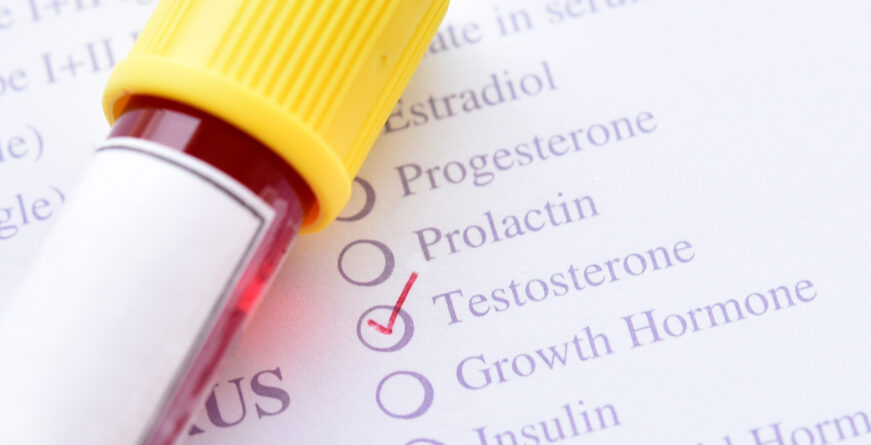As “Low T” commercials become more common and more men are having their levels tested, a frequent question asked is: “Is my testosterone level normal?” Truth be told, there is no correct answer for this. Normal for you may be different than normal for me. However, we have enough experience to know what these results mean.
A typical normal male testosterone level range given is 260 -1080 ng/dl as (which corresponds to about 8.8 – 36.7 nmol/l). However this is a very large range that is probably too low. Most medical providers agree that total testosterone levels <300ng/ml are low. In fact, the endocrine society, which has guidelines on hypogonadism, uses 300ng/ml as the threshold for low testosterone. However, what if your levels are greater than 300ng/ml but you have significant symptoms? These symptoms include: low libido, low energy, decrease in strength, erection difficulties, and feeling sad among others.
First, testosterone levels should be checked in the morning (8-10am) for men <45 years of age. Young men have significant variability in their levels as the day progresses. For men>45 years old, levels can be checked up until early evening (6pm). Testosterone variability decreases as we age. In either case, if your original testosterone level is low, a second should be repeated.
You should also have your LH/FSH, estrogen, sex hormone binding globulin level and free androgen index checked. This provides a complete look at the hormone panel. If your levels are between 300-400ng/ml, treatment should be considered based upon your symptomatology. Thus, men who are consistently at 350ng/ml with symptoms of low testosterone should be treated with testosterone replacement therapy. There are a couple of validated questionnaires that are used to help identify patients at risk for low testosterone. We use the AMS (Aging Male Symptoms) questionnaire. You can take the quiz here.
If your total testosterone is consistently >400ng/ml with a normal free androgen index, a thorough evaluation should be undertaken to identify other causes of your symptoms as testosterone is most likely not a significant factor.
Remember, each person is different. Make sure you work with a provider, such as Maze, who is knowledgeable with testosterone replacement therapy. Learn more about Low T or contact us to schedule an appointment.


